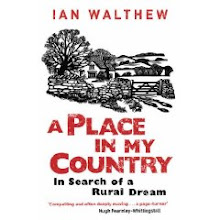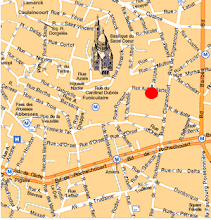Saturday 9 July 2011
How to Recommend Your Own Blog
PLEASE: IF YOU WISH TO RECOMMEND YOUR OWN BLOG THERE ARE SOME SIMPLE REQUESTS ON MY PART FOR YOU TO FULFILL BEFORE I WILL EVEN LOOK AT YOUR BLOG:
1. Please send me the name of your blog AND its URL.
2. Provide a brief description of your own farm and blog, such as when you started it and why, and what sort of farming you're involved in and what do you post about.
3. Provide a list of the main livestock, crops and/or fibres you are farming. (N.B. This is NOT a donkey or horse blog.)
4. Provide your location, by nearest town, state/region and country.
5. Provide the size of your farm in acres and/or hectares.
6. Now for the really important bit: along with recommending your own blog (which is no shoe-in that I will like it or add it to the blogroll here) please provide YOUR recommendations for between one and five of your favourite farm blogs which you would like to recommend yourself AND which are not already listed.
If you don't recommend at least one other farm blog, other than your own, giving me their exact names, URLs, the location of the farm and a few sentences on why you are recommending them, then I won't feature your self-recommended farm blog, however good your own one might be.
(There are special prize points for those who recommend blogs that are not in their own country, not because I don't want more of them, but because I am also trying to connect farmers in different countries, not just finding the best farm blogs in the world.)
Apologies for being so prescriptive but good bloggers recommending even better ones is very much the ethos of this blog. Furthermore, by following the above guidelines, I can feature as many new blogs as possible in the very limited time I have available to me to keep this blog going.
Many thanks,
Ian
Food borne Diseases
With European food consumers reeling from a current total number of 46 deaths, and many more ill, hundreds seriously, from a single source of food, it's perhaps worth noting that in the U.S.A. alone, the CDC "estimates that each year roughly 1 in 6 Americans (or 48 million people) gets sick, 128,000 are hospitalized, and 3,000 die of foodborne diseases."
However what has been especially troubling from the recent European outbreak is that so many deaths have come from what appears to be a single source: most likely infected bean sprout seeds imported from Eygpt and used on an organic farm in Northern Germany.
To put that single-event-European-death toll in perspective, of the "10 Worst Food Contamination Outbreaks” in the U.S.A. alone, the highest death toll from a single event was generally one to two people. (With the exception of the Jalisco Cheese, Listeria outbreak of 1985 which claimed 48 lives.)
That said, the risks of even falling seriously ill from food poisoning fade into insignificance when compared with deaths from road or gun accidents, even homicide.
Many organic farmers speak a great deal about food security, but frankly it seems to me that the main benefits of locally produced, organic food are taste, the reduction of the environmental footprint of agriculture and last but not least, animal welfare.
Subscribe to:
Posts (Atom)




















